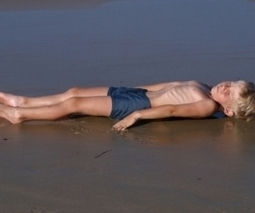A collaboration of scientists at the Heidelberg Institute for Theoretical Studies (HITS) and in Canada and the US have now discovered that diffuse gas in the universe can absorb luminous gamma-ray emission from black holes, heating it up strongly. This surprising result has important implications for the formation of structures in the universe.
BLACK HOLES: http://www.scoop.it/t/science-news?tag=Black%20Hole



 Your new post is loading...
Your new post is loading...











